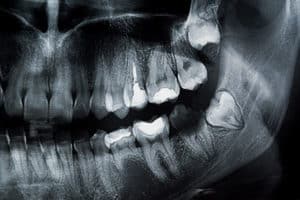Recognizing the Symptoms of Impacted Wisdom Teeth
Impacted wisdom teeth can cause significant discomfort and lead to more serious dental issues if not addressed promptly. Understanding the symptoms of impacted wisdom teeth is crucial for seeking timely treatment and maintaining oral health. At Plage Dentistry in Wilmington, NC, we are here to help you identify and treat these symptoms effectively.
Common Symptoms of Impacted Wisdom Teeth
Wisdom teeth, also known as third molars, often become impacted due to lack of space in the mouth. This impaction can lead to various symptoms, including:
-
Pain and Discomfort:
- One of the most common signs of impacted wisdom teeth is persistent pain and discomfort at the back of the mouth. This pain can radiate to the jaw, ear, or head, causing significant discomfort.
-
Swollen and Tender Gums:
- Impacted wisdom teeth can cause the gums around the affected area to become swollen, tender, and inflamed. This swelling can make it difficult to open the mouth fully or chew properly.
-
Jaw Pain and Stiffness:
- The pressure from impacted wisdom teeth can lead to pain and stiffness in the jaw, making it challenging to perform everyday activities like eating and speaking.
-
Bad Breath and Unpleasant Taste:
- The presence of impacted wisdom teeth can create pockets where bacteria can accumulate, leading to bad breath and an unpleasant taste in the mouth.
-
Difficulty Opening the Mouth:
- Severe cases of impacted wisdom teeth can cause difficulty in opening the mouth fully, affecting daily functions and overall quality of life.
-
Swollen Lymph Nodes:
- In some instances, impacted wisdom teeth can cause the lymph nodes in the neck to become swollen and tender.
When to Seek Treatment
If you experience any of these symptoms, it is essential to seek treatment from a dental professional. At Plage Dentistry, our experienced team can evaluate your condition and recommend the best course of action, which may include wisdom teeth removal.
Treatment Options
-
Monitoring:
- In some cases, impacted wisdom teeth may not cause immediate problems and can be monitored with regular dental check-ups.
-
Medication:
- Pain relievers and antibiotics may be prescribed to manage pain and infection.
-
Wisdom Teeth Removal:
- If the impacted wisdom teeth are causing significant issues, surgical removal may be necessary. Our skilled dental surgeons can perform this procedure safely and effectively.
Preventive Care
Regular dental visits and X-rays can help monitor the development of wisdom teeth and detect potential impactions early. Practicing good oral hygiene and following your dentist’s advice can also prevent complications associated with impacted wisdom teeth.
For more information or to schedule a consultation, contact Plage Dentistry in Wilmington, NC. Our team is here to provide the care and support you need for all your dental concerns.
